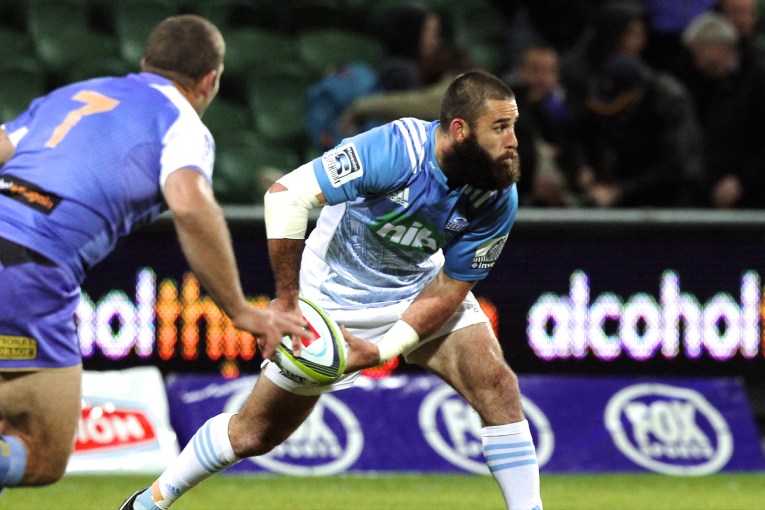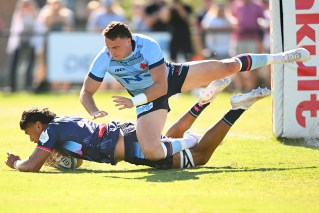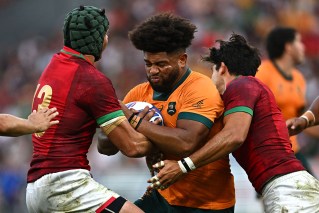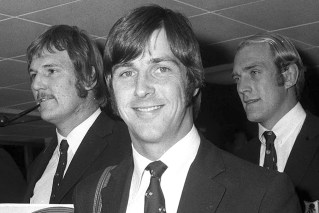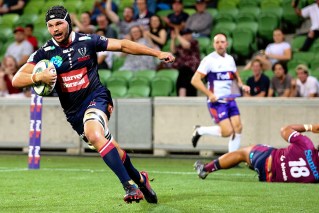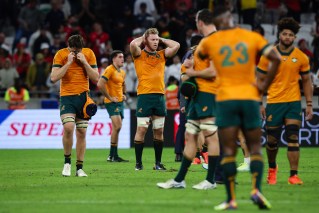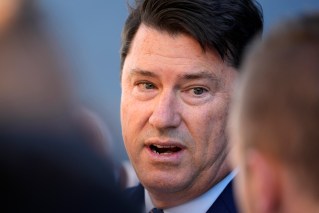Sonny Bill Williams and the code-hopping conundrum

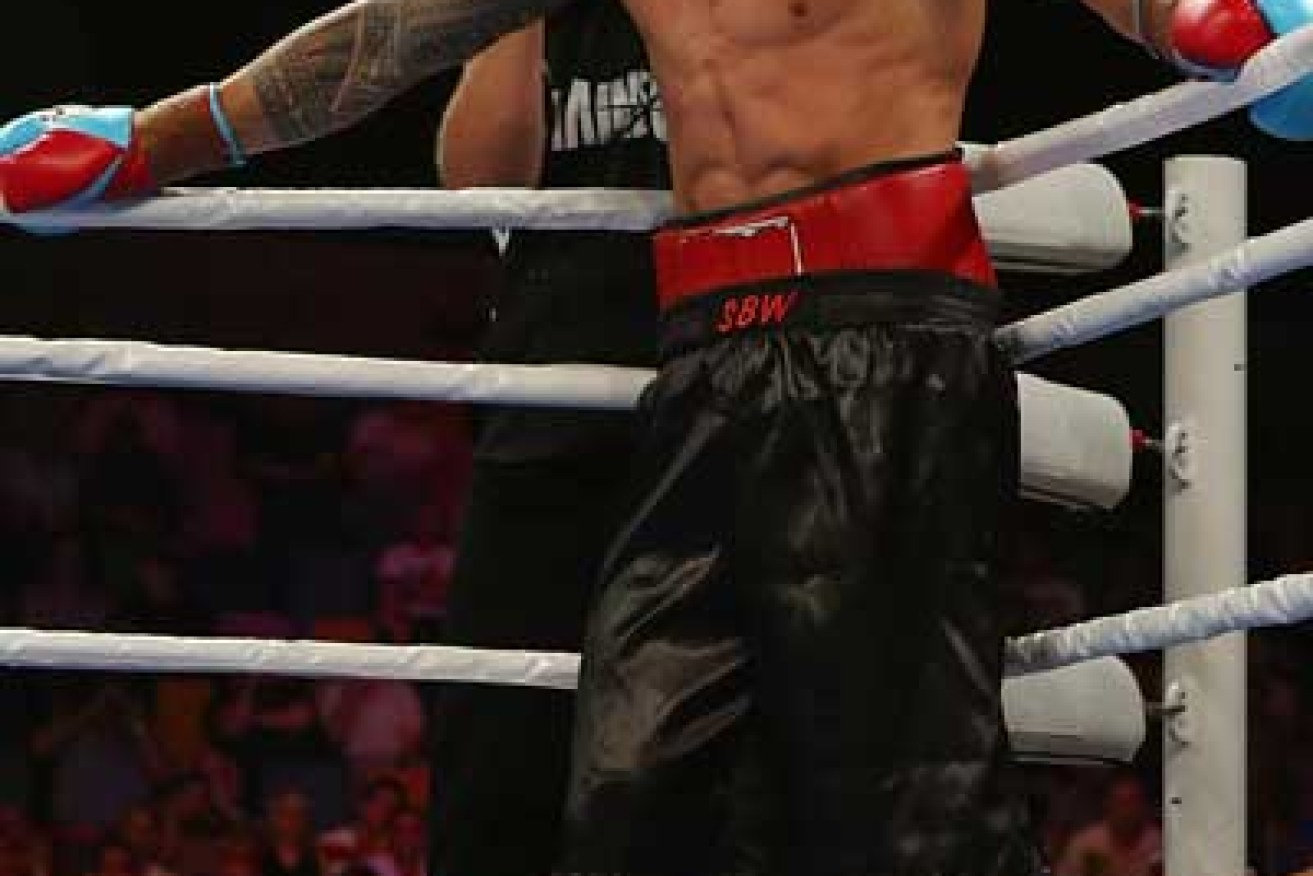
Getty
Code-hopping megastar Sonny Bill Williams, bound for a return to rugby union when his deal with the Sydney Roosters expires at the end of the season, this week left the door ajar for a third NRL stint.
The phenomenally talented, influential and polarising ‘SBW’ strongly indicated that his two-year deal with the Waikato Chiefs and NZRFU could be bookended by another comeback with the Tricolours in 2017.

Sonny Bill in action for the Roosters. Photo: Getty
Williams has been branded a mercenary ever since his shock walkout on the Bulldogs in 2008 – just half a season into a five-year deal – to join French 15-a-side outfit Toulon.
Many rugby league fans still cannot bring themselves to embrace him again, despite Williams’ admission of regret and fault at the way his departure from Belmore unfolded.
It reeks of hypocrisy that only the top echelon of players are pilloried for switching codes, while lesser lights are farewelled with a pat on the back and best wishes.
Meanwhile, Williams has a liberal smattering of critics on the union side of the fence who continue to chastise his rapid switching between codes and begrudge his success in their game.
These draconian standpoints should have been jettisoned around 1995, when rugby union belatedly became professional; that development changed the Australasian sporting landscape forever.
It reeks of hypocrisy that only the top echelon of players are pilloried for switching codes, while lesser lights are farewelled with a pat on the back and best wishes. Even after setting aside his controversial and often farcical boxing career, Williams is a unique case because he has swapped several times. But Brad Thorn followed a similar path (albeit without a broken contract) and was unanimously lauded at every turn for his astonishing durability and virtually unmatched cross-code achievements.
The difference is Williams’ status as an indispensable marquee player, which leads a misguided majority to contend he has a duty to remain with one club and one code until he retires. Loyalty is the epitome of a double-edged sword when it comes to players of Williams’ ilk; because he is so brilliant, he is in astronomically high demand. But if he wasn’t such a freak, clubs and franchises would have no qualms about showing him the door. Loyalty on the club’s behalf would fall by the wayside
Even Williams’ harshest detractors could not question the quality of his performances or his commitment to his respective teams – particularly the ubiquitous game-breaker’s roles in the Chiefs’ and Roosters’ euphoric title successes, in 2012 and ’13 respectively.
Disappointment in losing a player of his quality is natural, but why do so many react so spitefully when Sonny Bill opts for a sea change? It’s unbalanced and unfair.
Another aspect to mull over is where should Sonny Bill Williams end his career? As has been his way, outside influences will not affect his future decisions. But from our perspective, which code would best service Williams’ legacy and maximise his talents in 2017?

Williams’ boxing career has stalled since he got a fright from Frans Botha last year. Photo: Getty
Sonny Bill is an unequivocal ‘Rah Rah’ superstar, but to league fans, he is a once-in-a-generation player. The romantics among league types would love to see Williams finish with the No.12 that indicates second-rower, rather than second five-eighths, on his back – if only to see him pursue that glimmer of a fairytale finish, and to bask once more in the brilliant exhibitions of one of their most unique products.
Whatever his motivation, Williams has paid his dues and whichever code can secure his signature in two years’ time will gleefully accept it.
Williams’ return to union in October presents its own set of spiky questions. His likely fast-tracking into the All Blacks’ end-of-year tour squad will undoubtedly rankle with dyed-in-the-woollen-jumper Kiwi rugby-heads, as will his public declaration he is aiming for next year’s Rugby World Cup and the Rugby Sevens’ debut at the 2016 Olympics. Cue the ‘glory-hunter’ jibes.
• SBW signs two-year NZ rugby deal
• New powers won’t keep all NRL superstars
The dynamic midfield back is no guarantee to walk into New Zealand’s starting XV, either. Long-serving greats Ma’a Nonu and Conrad Smith are still entrenched as the All Blacks’ centre pairing, while Otago sensation Malakai Fekitoa and Canterbury star Ryan Crotty are frothing for a Test start.
It would be tempting for Williams to see out his career in union – either on New Zealand’s shores, or courtesy of a cushy overseas deal – to preserve his phenomenal NRL renaissance of 2013-14. Williams overcame immense pressure to be the single-most important factor in the rebuilding club’s surge to its first premiership in 11 years.
Currently sidelined with a broken thumb, Williams has a good chance of repeating those heroics this year. But rebuffing another NRL comeback in two years’ time purely because he has already achieved the ultimate prize and answered his critics is not in Williams’ make-up, while there is also the lure of the 2017 Rugby League World Cup.
Whatever his motivation, Williams has paid his dues and whichever code can secure his signature in two years’ time will gleefully accept it. He is entitled to pick and choose, as are his prospective suitors – so leave the redundant loyalty debate out of it.
